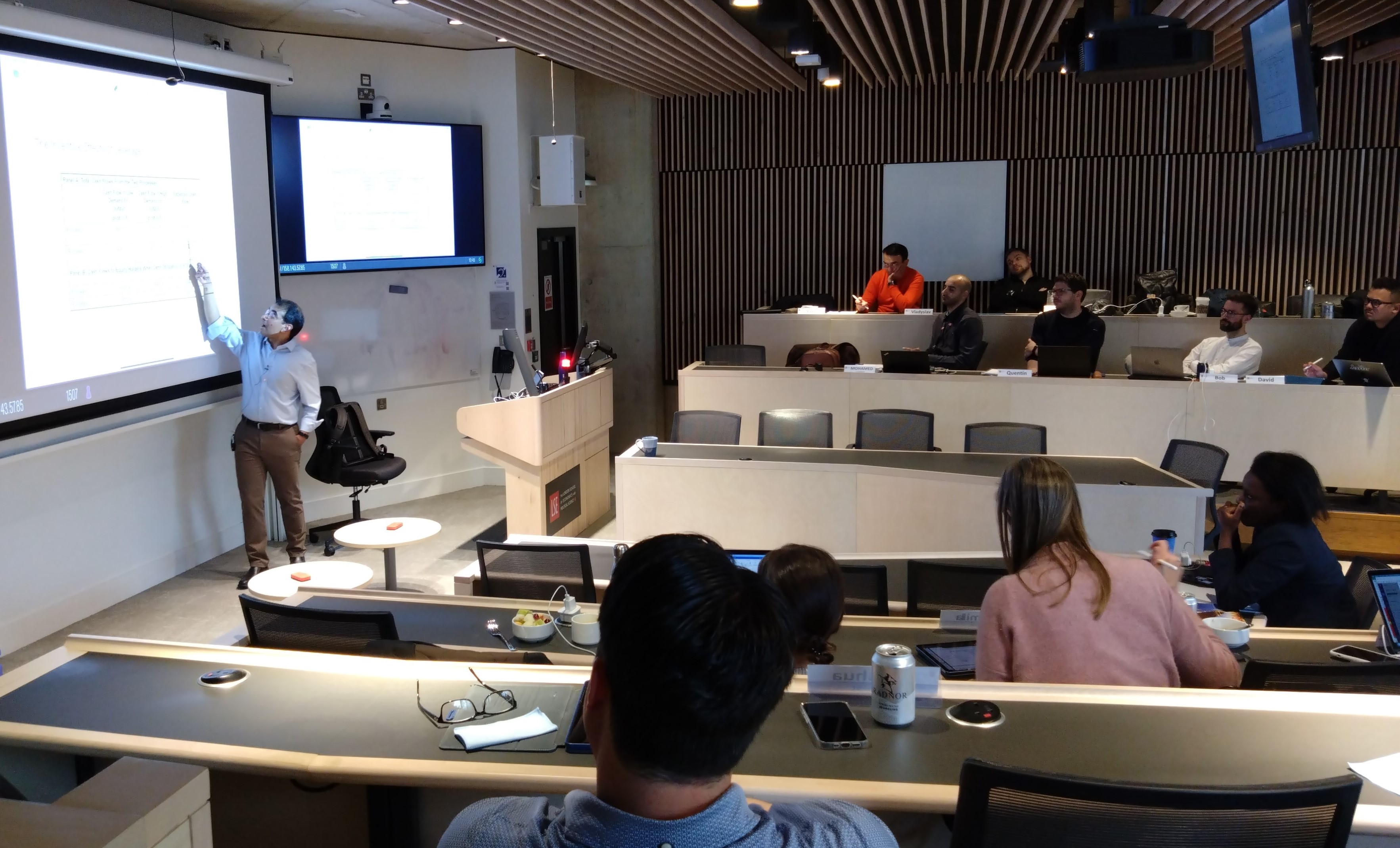
Professor Amil Dasgupta teaches Financial Management on the Executive Global Master's in Management (EGMiM). He holds a Professorship in the Department of Finance and currently serves as Programme Director for the MSc in Finance and the MSc in Finance and Private Equity. Over the years, Amil has held a number of leadership roles at the LSE, including as Deputy Head of LSE’s Finance Department and as Director of the LSE Doctoral Programme in Finance. He also serves on several external bodies, including currently as academic adviser to the Reserve Bank of India’s research centre, CAFRAL, and as research member of the European Corporate Governance Institute (ECGI).
Tell us a bit about your background:
Much like the EGMiM community, my background is quite international. I was born in the UK, but raised and schooled in India, and subsequently undertook my university education in the US. As an undergraduate in the US, I double-majored in mathematics and economics. My natural academic paths forward involved graduate school in one of those two subjects. While I wanted to use mathematics on an ongoing basis, my overall interests were more applied, so I decided to do a PhD in economics, and was fortunate to be accepted to the doctoral programme at Yale University. I took a break from education for a year before going to Yale to work as a Financial Analyst at J.P Morgan in New York. My time at J.P Morgan coincided with the Asian Financial Crisis of 1997. During my subsequent PhD years at Yale, I retained my interest in financial crises and ended up specializing in financial economics. When I was in the academic job market in 2002, I was lucky enough to be hired by the LSE's Department of Finance where I have been ever since.
Tell us about your research:
I study the role of institutional investors (mutual funds, pensions funds, hedge funds, etc.) in corporate governance and financial markets. Why are institutional investors important? Fifty years ago, US households directly owned around 80% of equity but today they only own around 30%. The rest is indirectly owned via institutional investors. This is not just a US phenomenon, but a global one. Thus, most shareholders in public corporations today are money managers. Since shareholders – as company owners – are the ultimate corporate stewards, modern-day corporate governance is intermediated: Funds that manage other people's money must monitor company executives who make business choices funded by external investors, a case of “agents watching agents.” Over the past decade, I’ve worked to establish the conceptual foundations of such “intermediated corporate governance,” an area central to how financial economists view the economy. An overview of research in this area – written with a non-technical audience in mind – is freely available to download at https://ssrn.com/abstract=3682800.
What do you enjoy most about teaching on EGMiM?
The EGMiM students are incredibly diverse coming from different backgrounds, cultures, and industries. They are highly engaged and bring a variety of perspectives, often with varying experiences of regulatory systems which allows for interesting and insightful classroom discussions – during which I find that learning often goes both ways. I always welcome the opportunity to reconnect with EGMiM alums as colleagues, friends, and collaborators.